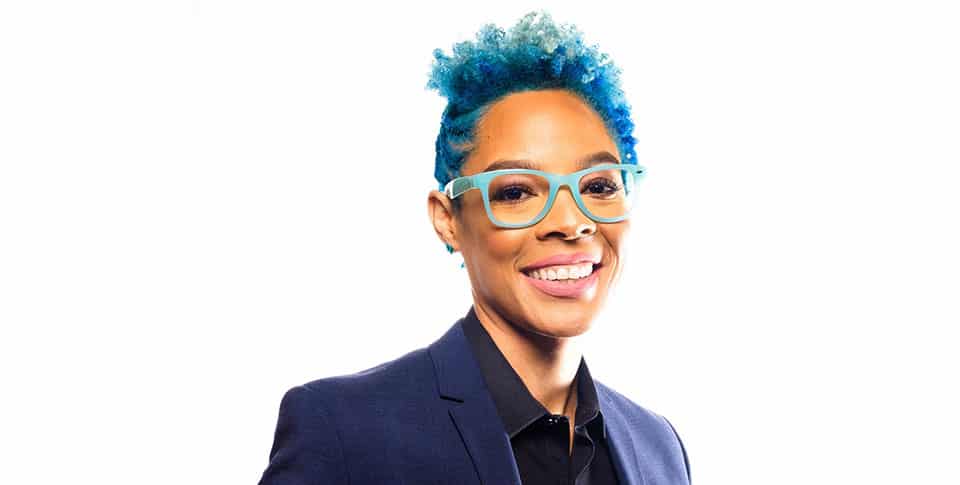Initiating the Important Conversations around Microaggressions

What is the cumulative toll when coworkers repeatedly mispronounce someone’s name? Or when people cross the street when someone who looks or dresses differently approaches? Such microaggressions — perhaps better called “subtle acts of exclusion” because there’s nothing “micro” about them — are ways that people unintentionally exclude and alienate others. Even though they may be unintentional, they do inflict harm. Research shows that insensitivities such as these wear on victims’ physical and emotional well-being.
Subtle acts of exclusion (SAE) slip out even though people have good intentions. Examples include trying to compliment someone: “You’re so professional,” express curiosity: “Where are you really from?” show connection: “You’re from Jamaica? I love Bob Marley!” or be funny: “Can we get el mucho discounto?”
Further, it can be awkward, if not perilous, for subjects of SAE to set the record straight. Pointing out the offense to a coworker, an acquaintance, or a stranger can raise hackles. It’s not unusual for the person confronted to respond defensively — conceivably along the lines of voicing that political correctness has run amok, or the victim is being oversensitive, or claiming a right to free speech.
Initiators of the subtle act of exclusion will focus on the intent behind the remark, when in fact what matters is the impact the remark had on the other person. Oftentimes the “normalness” of being in the majority in a place makes it hard to recognize the SAE. Yet, SAE is a way of extending one’s own cultural ideas or biases onto another, insidiously reinforcing implicit systems of dominance and control.
Speaking up when we see or hear a subtle act of exclusion taking place can be hard, but it’s also effective. Ignoring inaccurate assumptions or pretending they didn’t happen renders the subject invisible and silently condones the SAE. Speaking up also helps initiators to recognize that we all mess up sometimes, and the only real problem would be if we didn’t try to improve our behavior after receiving feedback.
To help the conversation go more smoothly when engaging someone or being confronted around SAE, keep these points in mind:
- Initiators: If you are the initiator of a subtle act of exclusion and someone speaks up to point it out, take a breath. The natural human reaction to being confronted is defensiveness — but don’t go there. Instead of trying to explain why you said, just stay calm, listen, and try to better understand the impact of what you said. You may be operating with a degree of privilege that makes it hard to connect to the experiences of marginalized people. Anytime an SAE subject or observer chooses to enlighten you about an offending SAE, consider that a gift and an act of trust. It’s a wonderful chance to improve your behaviors around inclusion.
- Subjects: If you are the subject of an SAE, it can often be socially or professionally risky to react. Still, if there’s a possibility of a productive conversation without negative repercussions, the best course of action is often to speak up in a way that holds people accountable through a productive, open, and civil conversation. When confronting the initiator, assume good intent and let the person know why you perceived what was said as problematic. For example, “I know you didn’t mean anything by this, but when you asked where I was really from, it made me feel as if I don’t belong here.”
- Witnesses: If you witness an SAE, do your best to offer support rather than sit idly by and watch a fellow human suffer the slight. Bring it to the initiator’s attention while also trying to put the person at ease. Say something like, “I know you didn’t mean it that way, and I’m not even sure if X person interpreted it that way, but it sounds to me as though it’s subtly communicating that that person is not normal.” You can help the initiator and the subject by naming the problematic remark. Choose your moments and settings for educating people wisely. Always communicate that you want to help, not blame.
A little bit of thought can go a long way toward disrupting some of the problematic patterns that we fall into when biased behaviors are left unchecked. People who are open to constructive criticism offered in kindness and love will avoid repeating the subtle act of exclusion. These challenging conversations are well worth the effort.
Written by Dr. Tiffany Jana and Michael D. Baran.
Have you read?
# Best (and worst) countries in the world for old people to live in, 2020
# Countries with the highest life expectancy in the world, 2020
# Most expensive countries in the world to live in, 2020
# Most Popular Places To Birdwatch In Each US State
# Best Countries For Investment In Ecommerce And Digital Sector, 2020
Bring the best of the CEOWORLD magazine's global journalism to audiences in the United States and around the world. - Add CEOWORLD magazine to your Google News feed.
Follow CEOWORLD magazine headlines on: Google News, LinkedIn, Twitter, and Facebook.
Copyright 2025 The CEOWORLD magazine. All rights reserved. This material (and any extract from it) must not be copied, redistributed or placed on any website, without CEOWORLD magazine' prior written consent. For media queries, please contact: info@ceoworld.biz








